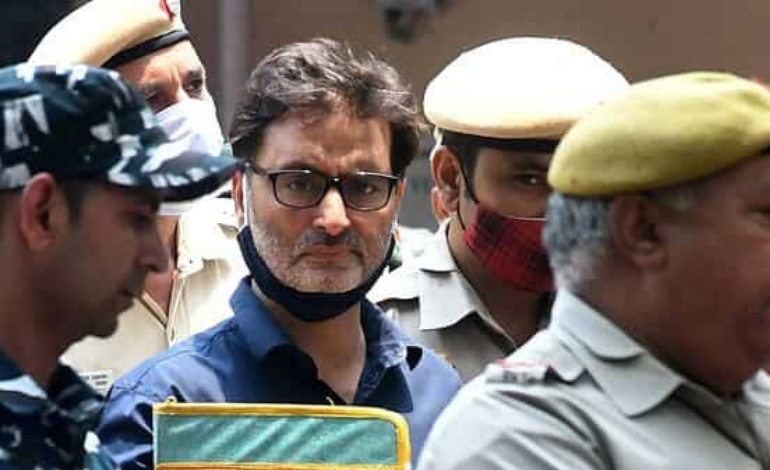Yasin Malik, the leader of the separatist Jammu and Kashmir Liberation Front(JKLF), was sentenced to life in jail by a Delhi court on Wednesday, a week after pleading guilty to terror funding, propagating terrorism, and secessionist operations in the Valley

Malik was charged under the Unlawful Activities Prevention Act, as well as sections 120-B (criminal conspiracy) and 124-A of the Indian Penal Code (sedition).
Malik pled guilty to all charges on May 10 after being charged in March. He stated in court that he would not be contesting any of the allegations.
The prosecution against Yasin Malik involved the Pakistan-based terrorist organisation Lashkar-e-chief Toiba's Hafiz Saeed and other separatist leaders conspiring to raise, receive, and collect cash for separatist and terrorist actions in Jammu & Kashmir both domestically and internationally.
The National Investigation Agency (NIA) stated its investigation found Malik was involved in terror activities and called for protests, roadblocks, and other disruptive acts to throw society into turmoil and lawlessness.
In the 1987 elections in Jammu & Kashmir, Malik acted as Salahuddin's polling agent.
Allegations of election fraud have beenregarded as one of the factors fueling insurgency in the region.
In the late 1980s, the JKLF and Hizbul Mujahideen led an insurgency in the Valley.
In the mid-1990s, the JKLF renounced violence, and Malik spent years in prison. Malik, who had his aortic valve replaced, has a number of health problems.
After escaping detention by jumping from a fifth-floor window in 1990, he was left deaf in one ear and largely paralysed.
Last Monday, special judge Praveen Singh stated that Malik was given enough time to consider his appeal.
Malik was also given the option to seek legal counsel in order to make an educated decision.
Malik was asked if he wanted to reconsider his plea.
Malik replied that he had made a well-considered decision.
It was observed that amicus curiae Akhand Pratap Singh visited with Malik twice in jail and discussed the repercussions of his decision, but the separatist leader insisted on pleading guilty.
According to the court, Singh was ordered to pay a visit to Malik in jail and hold a meeting with him so that the separatist could be informed of the utmost penalty that might be imposed on him if he entered a guilty plea.
Because Malik did not have a lawyer, Singh was selected as an amicus curiaeand argued his case.